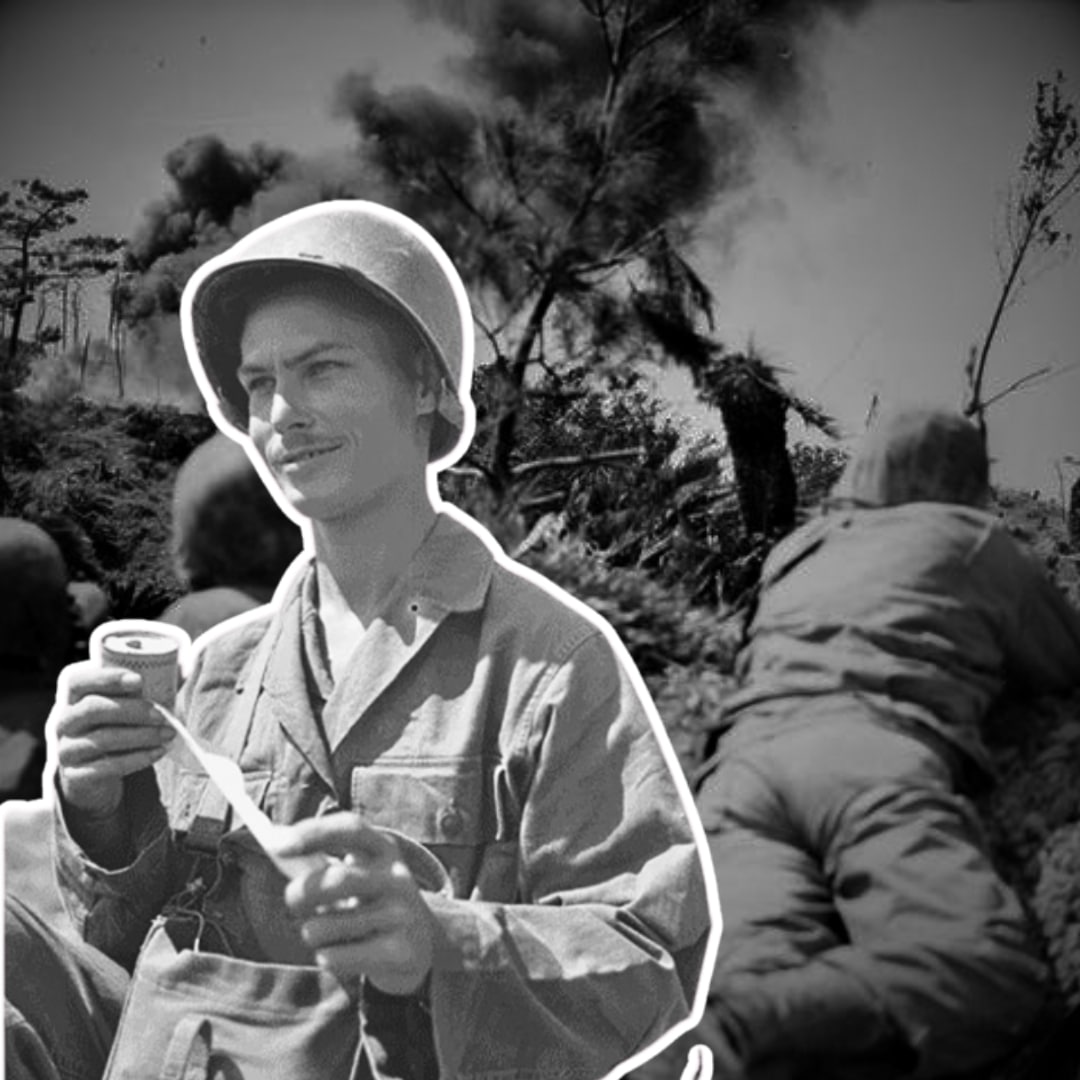
Desmond Doss, whose pacifist beliefs set him starkly apart from the conventional warrior archetype, is still known as one of the most courageous men of WWII. Carrying neither rifle nor bayonet, Doss entered the bloodiest theaters of World War II armed only with an unwavering moral compass and a medic's kit.
Therefore, his service as a conscientious objector, which could have relegated him to the margins of history, instead propelled him into the limelight through acts of extraordinary bravery. The paradox of a man who sought to heal amidst the machinery of war invites a closer examination of the seemingly irreconcilable forces at play within his character.
As we consider his conviction, one cannot help but wonder how Doss reconciled his devout adherence to the Sixth Commandment with the visceral chaos of the Battle of Okinawa, where his actions would ultimately challenge and redefine the very notion of courage under fire.
Amidst the chaos and violence of World War II, Desmond Doss emerged as an extraordinary figure, an unarmed hero who valiantly faced the horrors of battle to save his fellow soldiers without ever lifting a weapon. As a conscientious objector, Desmond Thomas Doss adhered to his deep religious convictions, refusing to bear arms even in the direst circumstances.
His role as a combat medic was put to the ultimate test during the Battle of Okinawa, at a place that would come to be known as Hacksaw Ridge. Against a relentless onslaught from Japanese troops, Doss refused to carry a gun, dedicating himself to the care and evacuation of the wounded. His heroic actions over the course of a brutal campaign saw him single-handedly save 75 lives, an achievement that garnered him the Medal of Honor. Remarkably, this recognition marked Doss as the first conscientious objector to receive the United States' highest military award for bravery under fire.
Doss' unwavering commitment to his principles, combined with an indomitable spirit of self-sacrifice, carved his status as an iconic figure of nonviolent courage. His story of facing combat unarmed stands not only as a testament to personal faith but also as an enduring legacy of bravery against overwhelming odds.
Desmond Doss's valiant actions during the Battle of Okinawa epitomized the quintessence of bravery as he saved 75 of his comrades without once wielding a weapon. As a conscientious objector, Desmond Thomas Doss's decision to not carry a gun caused skepticism among his fellow soldiers. However, his brave actions as a combat medic would cement his legacy.
Amidst savage combat, Doss exhibited unflagging courage, tending to the wounded under relentless enemy fire. Even when a Japanese grenade landed at his feet, Doss's priority remained his injured comrades. He suffered injuries from a sniper's bullet that shattered his arm, yet he persevered, refusing a direct order to retreat in order to ensure the safety of others. His tenacious spirit drove him to lower men down a steep cliff, securing their evacuation from the battlefield.
Consequently, for his extraordinary heroism, Desmond Doss became the first conscientious objector to receive the Medal of Honor. Unquestionably, this prestigious award recognized his selfless service, a testament to an individual whose moral convictions did not deter him from facing the horrors of war to save lives.
The unwavering principles upheld by Desmond Doss throughout World War II have left an indelible mark on history, shaping his enduring legacy as a symbol of peace and valor. Known as Desmond Thomas Doss, this conscientious objector demonstrated that deep convictions do not hinder, but rather enhance, the courage required in the throes of combat. His refusal to bear arms did not detract from his commitment to serve, as he saved 75 lives during the Battle of Okinawa without once compromising his staunch beliefs.
Awarded the Medal of Honor, Doss became a beacon of heroism, challenging the notion of what it means to be a soldier in World War II. His actions spoke volumes about the strength of pacifist principles in a time of widespread violence. Doss faced considerable opposition for his convictions, yet his steadfast resolve never faltered, cementing his status as a true hero.
In the years following the war, Doss' heroic story continued to inspire. Books, documentaries, and a critically acclaimed film have recounted his extraordinary deeds, while institutions such as schools and health clinics bearing his name serve as a testament to his impactful legacy. Desmond Doss remains a towering figure, exemplifying the profound effect one individual's convictions can have on the world.
Desmond Doss, a heroic pacifist and battlefield medic, exemplified valor recognized through his moral conviction. His unarmed bravery as a fearless noncombatant earned him three Purple Hearts, affirming his status as a wounded savior.
Desmond Doss exhibited exceptional bravery, combining unarmed heroism with combat pacifism. His spiritual conviction and moral stand led to fearless saving of lives, even in enemy territory, embodying an unwavering faith and selfless courage.
Yes, conscientious objectors have been recognized for their peaceful bravery and honored service. Their nonviolent heroism exemplifies moral warfare and alternative service, rooted in strong religious convictions and faithful valor. Desmond Doss is a notable example.
Desmond Doss is widely regarded as one of the bravest medics in WWII, having performed extraordinary feats of wartime medicine and frontline aid without carrying a weapon, under the most harrowing conditions.
Desmond Doss's unwavering adherence to his principles amidst the harrowing conditions of World War II illustrates the profound impact of individual conviction on collective history.
His courageous actions at the Battle of Okinawa, achieved without bearing arms, demonstrate the extraordinary potential for nonviolent valor in conflict.
Doss's legacy continues to inspire, serving as a testament to the strength of moral fortitude and the enduring significance of conscientious objection in the annals of military heroism.